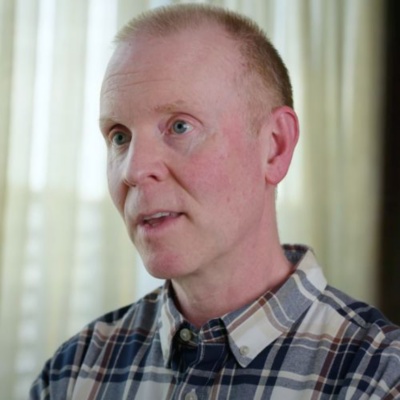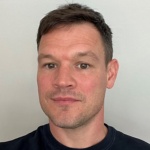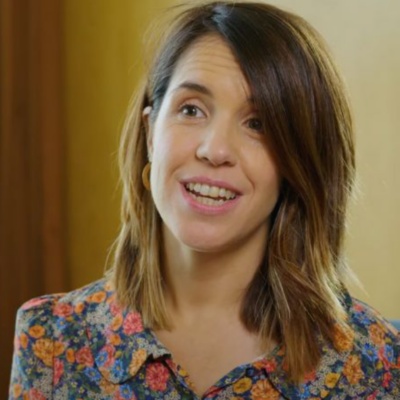Anja Fordon: [music] Companies are making good progress towards meeting climate-related reporting requirements, but there are many taking their first tentative steps on the journey. Experts seem to have a chief consensus on one thing though. Access to good-quality data is one of the cornerstones of successfully managing ESG. Welcome to today's Workday Podcast. I'm Anja Fordon, and on today's show, I'm joined by Murat Sonmez, CEO of pulsESG, to discuss the importance of data, some of the pitfalls businesses are facing, and some practical advice for business leaders on the road to ESG compliance. Welcome, Murat. It's so good to have you on the show. Thank you for coming today.
Murat Sonmez: Thank you, Anja. It's my pleasure and thank you for inviting me.
Anja Fordon: So we usually like to start our conversations by getting to know our guests a bit better. So would you mind introducing yourself and tell us a bit about the path that you have taken so far in your career?
Murat Sonmez: Sure. I grew up in Turkey and I studied engineering, but I loved programming. So I took my programming courses early on. And then I went to the US for my graduate studies in the '80s. And in 1987, I took my first artificial intelligence course. And that landed me a job in Silicone Valley in 1989 as a software engineer before the internet. But it was through some connections I cofounded an enterprise software company in '97, TIBCO Software. We took it public. Grew it to be a billion-dollar company. And then I was invited to join the managing board of a European non-profit World Economic Forum. So I switched careers from software to non-profit. I was on the managing board for six and a half years. It was truly transformational because there I got to see the impact of public-private corporation on long-term opportunities and challenges. And one of the initiatives we had was on non-financial disclosures. A lot of the CEOs came, especially from Europe, and said, "This is going to be regulated. Our investors are already demanding us to disclose non-financial metrics. There's not a standard way to do it. Can you help us figure it out?" So at that World Economic Forum, we worked for two years with audit firms, came out with a framework, and that took me back to my enterprise software days because when I asked all these CEOs how they were doing it, universally, everybody said, "Spreadsheets and emails." [laughter] And when I asked the auditors, "Will that cut it?" they said, "No way."
So then I came up with the idea of a cloud-based platform, called my former colleague, my cofounder, Inderjeet Singh. When I left for the World Economic Forum, he had gone to Oracle to build their cloud platform. And I said, "Inderjeet, we have an opportunity to have another startup, and be impactive as well." So we found the company 10 months ago, didn't go for funding right away, conducted about 100 design workshops with 24 of the CEOs. They were so gracious with their time because it mattered to them as a business to contribute to the society, to be competitive, and to be compliant. And coming out of these workshops after 6 months, we said, "Okay. There is a need." We went for funding. We were planning to raise 2 million and did our appraising 9 and a half. Then I built a platform and started forming partnerships, getting customers on board. Accenture made an investment, and then Workday recently made a strategic investment which we're very happy about. And that's my story.
Anja Fordon: That is very impressive, Murat. The company that you founded is pulsESG, right?
Murat Sonmez: Correct.
Anja Fordon: For those who don't know pulsESG yet, would you tell us what you're all about?
Murat Sonmez: It's a cloud-based application to help companies define, capture, disclose, and improve their environmental, social, and governance metrics. It's ESG. Sometimes people refer to it as sustainable. In the past, it has been nice to have. It was put in somewhere in the annual report and people read it. It was kind of our contribution to society. But now that the regulations are coming in, and the investors are requiring it, it's become more material. So in addition to the sustainability teams, the chief financial officer, the compliance officers are getting involved and saying, "Hey, before we disclose all of that information, let's make sure that it's current, complete, and correct." What we typically see is hundreds of spreadsheets and emails that's used to collect all that information. And if somebody comes to you and says, "Where did this data come from?" Nobody knows. Or if an external entity accuses a company of greenwashing their numbers, there's no way to disclose that. So we address that problem in providing an easy-to-use and scalable platform that is already integrated with Workday so our mutual customers can benefit from it.
Anja Fordon: So I think maybe we go a step back. Even though we might think everybody knows about ESG and what it is, the truth is that many professionals, it's at least the experience, still don't really know what does it mean for their respective areas. What data is collected in HR, for example? What does it mean for finance sectors and so on? Can you tell us a little bit about that?
Murat Sonmez: Sure. A most widely known metric is carbon footprint. What's your carbon footprint from your operations, from the energy consumed, and from the external activities is called scope one, scope two, and scope three. Typically, a large enterprise would have 500 metrics. Carbon is one of them. And if you look at environmental metrics, there is waste management, water treatment, soil erosion. There are a lot of metrics associated with the E column. And on the social piece, this is where Workday comes in in addition to finance, is diversity, equity, and inclusion. How many managers are what gender? And if you look at how people use HR systems, you don't have a single category called management. You have multiple. So it's not an easy question to answer. And what's the diversity in terms of your teams and locations? If you're in manufacturing, are you using forced labor in your supply chain? Where is your material coming from? Are you paying competitive prices? So it extends beyond the enterprise. It gets really complicated. And if you have-- say there are a couple of hundred metrics, it becomes a bit of a difficult task to manage.
Anja Fordon: So how can companies actually prepare? Because we know that next year already, right, it gets really mandatory, at least for companies over 250 employees, if I'm correct. So what can companies do right now to prepare for this mandatory collection of data to report an ESG?
Murat Sonmez: The best action would be to adopt pulsESG. I mean it. It sounds self-serving, but they need to adopt a platform like ours. We have designed it with a forward view, as opposed to a lot of companies who come from different backgrounds and trying to adjust it. We've designed it for ease of implementation and ease of use with performance and scalability. Now, the big companies will figure it out. They'll hire hundreds of consultants and pay millions of dollars, even though they don't like it. But midsize companies don't have that luxury. So we've designed our system to be used by them. Just to give you an idea, we have a large manufacturing company in the US. It's the largest building products manufacturer in the US. They have 93 factories. From contract signature to phase one live-- from signature, took us six weeks. So we can really–
Anja Fordon: Wow. This is impressive.
Murat Sonmez: Yes. We have designed it, again, for what we called ease of consumption with modern-day look and feel. And we provide catalog of metrics. And so we already start with high level of preparation. All we have to do is configure what we want, push it out, and do the analytics. But companies need to start looking at a solution now. They need a system of reference or a record like pulsESG. There are a lot of companies. Everybody says they have one. You cannot not have an ESG story as we see from Workday clients as well. But when you look into the details, the question is how long does it take to implement? If a new regulation comes in, what happens?
Anja Fordon: Exactly. And time is key right now.
Murat Sonmez: Time is key, yes.
Anja Fordon: And beyond that, what kind of skills do organization need in order to adapt, in order to implement?
Murat Sonmez: The most important one, Anja, would be mindset because if you're doing financial reporting, disclosure, I mean, you're used to that. It just adds a few hundred metrics. But there you have the skills to do that. But it really requires taking a step back and saying what is material to us to disclose? What is coming? The difficulty in today's market in North America and also in the EU and UK is regulations are not finalized yet. There are some and there are more coming. So unlike financial systems where we have gap as a framework, we do not have that yet for ESG. There are initiatives to do that and we're following it. So they need an approach that kind of future-proofs them. And if you look at our platform, we will make sure that our catalog of metrics are up to date all the time, so that if new things come up, it's already reflected in our platform.
Murat Sonmez: The other challenges-- we heard about it yesterday. There was an ESG roundtable. People said, "Yeah, sustainability was part of your corporate social responsibility, and now you have to be a sustainable business, period." And it reminds me early in Silicon Valley days when this digital e-business came up, a lot of manufacturers and clothing companies, groceries, told us, "Oh, this e-business is not for us," and they had a separate e-business division. And now you cannot not be an e-business, right? So I think sustainability will be part of the overall culture of business. So it's more of a mindset than the skills, but I mean, they have the skills already.
Anja Fordon: Yeah. And so basically, it is a bit like-- it's not just about adaptation. It's about actually really becoming a, yeah, as you say, more environmental-- not even friendly, but really conscious company in every step that you take. There is no other way in the future.
Murat Sonmez: Exactly. And environmental, again, carbon is one of the many areas, right?
Anja Fordon: Yeah. Right.
Murat Sonmez: So if you look at forced labor, child labor, sourcing of materials, obviously, carbon is a big one. We're seeing the effects of it every day. But it's E, S, and G as well, the environmental, social, and governance. And I think people are-- the CEO as we talk to the chief executives and sustainability officers. Sustainability officers are really becoming more critical in the operations because companies are saying that we need to be a sustainable business, embed it. How can we make it company-wide? But that also means that they're under pressure because they have very few people and no tools other than spreadsheets and emails. So in a couple of years, I think this will become mainstream. But it will be a challenge for the companies to get going, especially for small and medium enterprises.
Anja Fordon: What do you think of the cost implications of implementing ESG as a solid strategy? How should businesses think about it from a total cost of ownership or ROI perspective?
Murat Sonmez: I don't think ROI should factor into it because, like digital business, people don't say what's the ROI. You have to do it. Financial disclosure is people have to do it. So for compliance, we have to do it. Period. But when you look at the cost implications, there are three costs. One is what's the cost of not doing it? So there is compliance. If your numbers are incorrect and you're accused of greenwashing your numbers because anyone can [inaudible] proof to us and you have to spend millions of euros or dollars. The second one is retrofitting your products and services to be more sustainable. Now, how do we make it more sustainable? And if you're in acid-heavy industries, it's very hard. It requires, again, a strategic thought process and a lot of capital investment to move to more environmentally friendly products and services. And the third one is easy. It's implementing a system of record like pulsESG. As I mentioned, we can go live in a matter of a few months. The cost is a couple of hundred thousand dollars a year. So it's not really a high-expense item. But the more important one will be how do we transition to become a more sustainable business in the products and services we offer? And I don't think companies will have a choice. And also, if you are a small company but your customers' large companies are subject to these requirements or regulations, by definition, you are subject to them as well. So the entire ecosystem has to prepare for that.
Anja Fordon: Right. And finally, what I wanted to ask you is how do you see ESG becoming more of a trend over the next years? But you already said it's not actually a trend in a sense of something cool to do. It is cool to do, of course, but also it's an implication that we have to have, right?
Murat Sonmez: It is. And also, if you look at the upcoming generation, no matter which country you're in, they will decide to buy products and services that are sustainable. I'm seeing that from my son and his friends in the US. It's a developed economy and they can afford it. But also, when I talk to large companies, manufacturers, they're actually pushing this into their products because if you have sustainable products and services, it actually lowers the cost of delivering these products. Now, the transition cost will be high, but the total cost of delivery will be less. So I think that society will demand it, and we owe it to the planet and the society to make sure that whatever we do doesn't harm the environment or the societies we live in. But we do our best to improve the current status, and, I think, I see it as an obligation. Putting aside the regulatory requirements and all that, I think we all are obliged to do that as citizens on the planet.
Anja Fordon: I absolutely agree with you. And I think that's a wonderful last sentence for this show. Thank you so much, Murat, for being here today. It was really inspiring talking to you. I hope we you soon again talking more about it. I can't wait.
Murat Sonmez: Thank you, Anja, for having me, and look forward to it.
Anja Fordon: Thank you. Bye.






